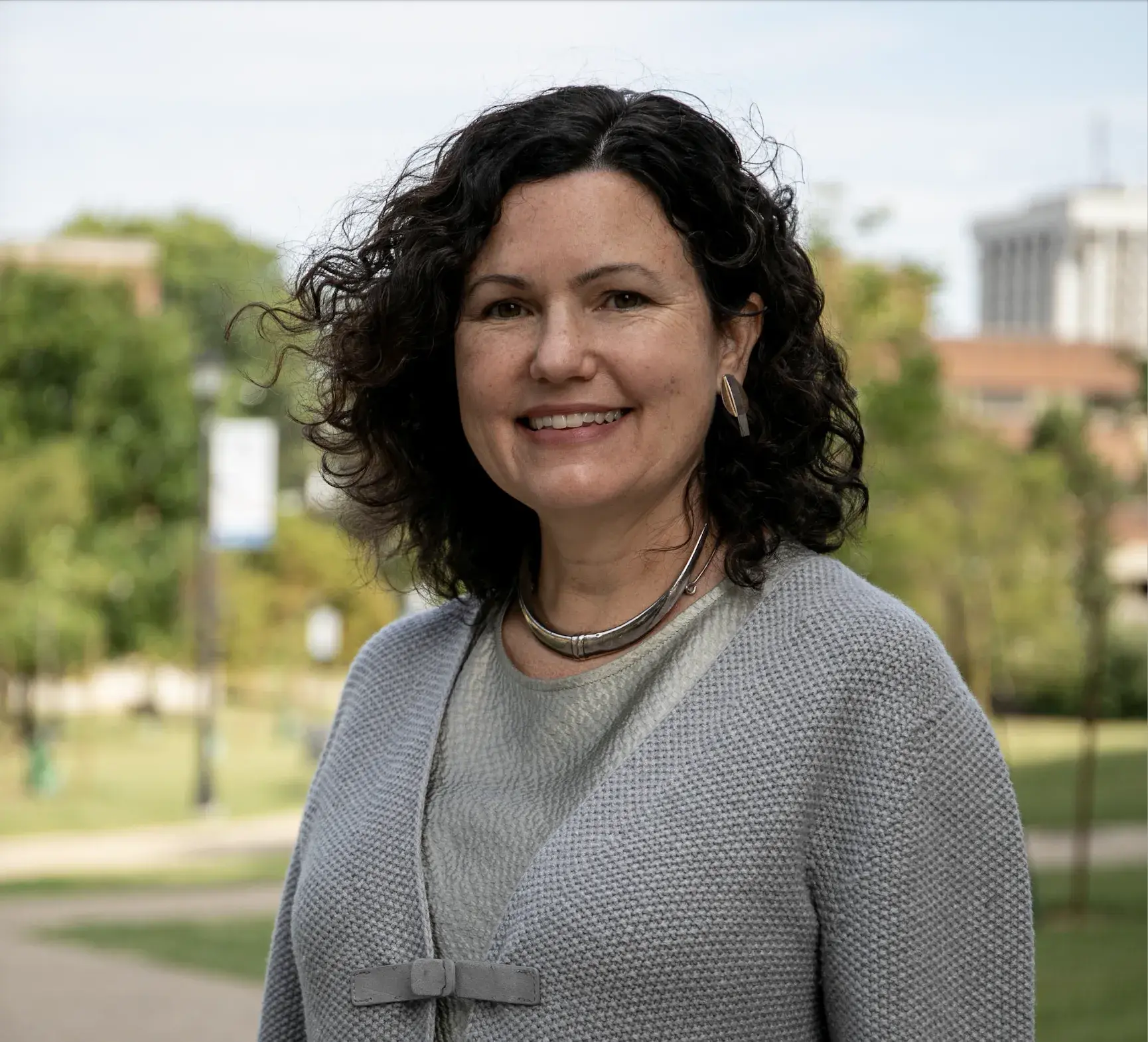Pearl James, Ph.D.
Associate Dean of Academic Affairs
About Me
Pearl James is the Associate Dean for Academic Affairs in the Lewis Honors College and an Associate Professor in the UK English department. She has a Ph.D. and an M.A. from Yale University in Literature and a B.A. from U.C. Berkeley. James's work focuses on representations of war in literature, popular writing, cinema, visual art, and propaganda. Her work intersects and engages with multiple scholarly disciplines including literary studies, history, gender studies, film and visual culture. In addition to writing about authors such as F. Scott Fitzgerald, Ernest Hemingway, and Willa Cather, she has also contributed to an exhibition catalog for a national art show on World War I and American Art.
She teaches courses in film and literature at both the undergraduate and graduate levels. She has received the Provost's Award for Outstanding Teaching (2014), the Alumni Association's Great Teacher Award (2015) and, for her work with Sigma Tau Delta, the Honors Society in English, the Student Organization Advisor of the Year Award (2016).
She lives with her family and two dogs not far from campus.
How to Honor the Balance
I honor the balance by getting outside and walking. I do something the Japanese call shinrin-yoku, or "forest bathing." Being in a natural space has been shown to reduce stress and promote a sense of well-being. I like to pay close attention to my natural surroundings and, in particular, I like to watch birds. These animals are so variable in their color, shape, song, and other adaptations—it's fascinating to watch how they hunt, nest, and socialize with each other. The Arboretum is a part of campus that I recommend to all students—it's very close but still allows you to get away from academic work and pressures. It's beautiful in every season, even in the snow. Bundle up and go for a walk!
Ask Me About...
- Doing Honors research in the Humanities
- Study abroad
- Hiking in Kentucky
Research
James's first book was an edited volume of essays on World War I propaganda posters, Picture This: World War I Posters and Visual Culture. The essays in this book consider how the political use of the poster was perfected during the World War I era as a means of reaching and mobilizing civilians and, in the process, contributing to the totalization of war that has marked the modern era. This book led to a collaboration with art historian David Lubin and James's participation in the first major exhibition devoted to exploring the ways in which American artists reacted to the First World War.
Her second book is a monograph on American writing about World War I. In The New Death: American Modernism and World War I, James considers how World War I's violence (particularly the damage it wrought on male bodies) disrupted gender roles, ideas of heroism, and traditional mourning practices. These, in turn, spurred many modernist writers to use literary language in new and elliptical ways.
Her interest in World War I film has led her to her current research question: how have cinematic representations of war adapted as audiences have had more--or different-- access to media coverage of conflict? She is currently working on a book that explores this question in relation to the U.S. Civil War, World Wars I and II, and the "forever wars" in Iraq and Afghanistan.
